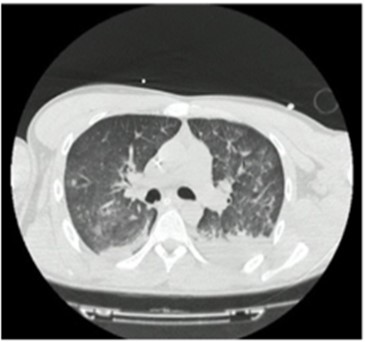Abstract
This article is a descriptive, prospective, and cross-sectional study to assess the opinion of residents regarding respect for their rights to education and decent work from April to May 2021. We include variables, such as age, gender, year of residence, specialty, as well as the survey results. Descriptive statistics were applied, as well as Pearson’s χ². Results: The answer was 64, age 28.1 years, men 57.9, first year 37.2, second 32.2, third 14.9, fourth 15.7 by specialty Anesthesiology 19, Cardiology 6.6, Medicine of the critically ill 0.8, Internal Medicine 18.2, Nephrology 0.8, Ophthalmology 8.3, Otolaryngology 5.8, Radiology and imaging 19.8, Traumatology 18.2, Urology 2.5 In 70.8 of the respondents, they perceive that their rights to education are favorable They are at a high and very high level, in relation to favorable decent work, 64.2 perceive it as high and very high. Traumatology described the lowest levels in both dimensions; however, no significant difference was found between all specialties when applying Pearson’s χ² with a value of p = 0.8498 (p = 0.05). Conclusion: Slightly more than three out of four of our respondents believe that in general their rights to education and decent work are at high to very high levels of respect. Traumatology represented the specialty with low to very low levels of perception. The overload reflects the effect on their social, family and academic life.
References
Szafran O, Woloschuk W, Torti JMI, Palacios Mackay MF. Intimidation, harassment, and discrimination during family medicine residency training: a mixed methods study. BMC Med Educ. 2021;21(1). https://doi.org/10.1186/s12909-021-02623-w
Canadian Medical Association. CMA National Physician Health Survey: A National Snapshot [Internet]. 2018. Available from: https://www.cma.ca/sites/default/files/2018-11/nph-survey-e.pdf
Nagata-Kobayashi S, Maeno T, Yoshizu M, Shimbo T. Universal problems during residency: abuse and harassment. Med Educ. 2009;43(7):628-36. https://doi.org/10.1111/j.1365-2923.2009.03388.x
Kemper KJ, Schwartz A. Bullying, discrimination, sexual harassment, and physical violence: common and associated with burnout in pediatric residents. Acad Pediatr. 2020;20(7):991-7. https://doi.org/10.1016/j.acap.2020.02.023
Nieto-Gutiérrez W, Toro-Huamanchumo CJ, Taype-Rondan A, Timaná-Ruiz R, Díaz CA, Jumpa-Armas D, et al. Workplace violence by specialty among Peruvian medical residents. PLoS One. 2018;13(11):e0207769. https://doi.org/10.1371/journal.pone.0207769
Crutcher RA, Szafran O, Woloschuk W, Chatur F, Hansen C. Family medicine graduates’ perceptions of intimidation, harassment, and discrimination during residency training. BMC Med Educ. 2011;11(1):88. https://doi.org/10.1186/1472-6920-11-88
vanIneveld CH, Cook DJ, Kane SL, King D. Discrimination and abuse in internal medicine residency. The Internal Medicine Program Directors of Canada. J Gen Intern Med. 1996;11(7):401-5. https://doi.org/10.1007/BF02600186
Cook DJ, Liutkus JF, Risdon CL, Griffith LE, Guyatt GH, Walter SD. Residents’ experiences of abuse, discrimination and sexual harassment during residency training. CMAJ. 1996;154(11):657-65.
Walton MM. Sexual equality, discrimination and harassment in medicine: it’s time to act. Med J Aust. 2015;203(4):167-9. https://doi.org/10.5694/mja15.00379
Vázquez Martínez FD, Sánchez Mejorada Fernández J, Delgado Domínguez C, Luzanía Valerio MS, Mota Morales M de L. La educación médica desde el enfoque de la salud basado en derechos humanos. Investig Educ Médica. 2020;(36). https://doi.org/10.22201/fm.20075057e.2020.36.20233
Meier BM, Onzivu W. The evolution of human rights in World Health Organization policy and the future of human rights through global health governance. Public Health. 2014 Feb;128(2):179-87. https://doi.org/10.1016/j.puhe.2013.08.012
Páez Moreno R. Abordaje bioético de “la educación médica desde el enfoque de la salud basado en derechos humanos”. Investig Educ Médica. 2020;(36). https://doi.org/10.22201/fm.20075057e.2020.36.20242
Salcedo Mesa R. Environmental degradation and human rights abuses: does the Refugee convention confer protection to environmental refugees? Int Law Rev Colomb Derecho Int. 2007;(10).
London L. What is a human rights-based approach to health and does it matter? Health Hum Rights [Internet]. 2008;10(1). Available from: https://www.hhrjournal.org/2013/09/what-is-a-human-rights-based-approach-to-health-and-does-it-matter/
Hall P. Doctors urgently need education in human rights. Lancet. 2002 Dec 7;360(9348):1879. https://doi.org/10.1016/S0140-6736(02)11779-X

This work is licensed under a Creative Commons Attribution 4.0 International License.
Copyright (c) 2022 Juan Antonio Lugo Machado, Patricia Emiliana García Ramírez, Elizabeth Medina Valentón Código, Mario Sepúlveda, Abraham Saldaña Márquez



